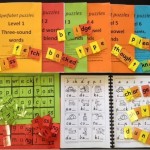Does this child need formal assessment?
0 Replies
It’s the last week of term here in wintry Melbourne, and many parents will be getting school reports saying their child has some reading and/or spelling difficulties, and suggesting further assessment.
Others will be worrying about their child’s skills, but being advised to wait and see if they catch up. Children often don’t catch up, and waiting for them to do so can waste valuable early intervention time.
A full developmental and educational assessment needs to be done by a psychologist, but can be quite expensive, and there are usually long waiting lists. If you think your child might have dyslexia/dysgraphia, please make sure your child does at least six months of high-quality intervention before seeking a diagnostic assessment, as that’s one of the diagnostic criteria for Specific Learning Disorder.
Speech pathologists can assess speech-language related aspects of reading and spelling, and provide recommendations, but again there’s usually a wait (though we have a few appointments available in North Fitzroy in the holidays, contact us here to find out more). Special educators can also assist with many assessments, but again those in the private sector often have long waiting lists, and if they’re school-based, they’re probably about to go on holidays.
If booking an assessment, make sure you find out how long it will take, what it will cover/include and how much it will cost beforehand. You don’t want to spend $1000+ on a 50-page report you don’t really understand, containing so many recommendations that you don’t know where to start.
AUSPELD online screener and parent website
The AUSPELD website has a useful Next Steps Screening Tool designed to help parents work out whether to seek formal assessment and/or intervention for their child.
AUSPELD’s Understanding Learning Difficulties for Parents website also contains great information to help parents understand children’s learning difficulties, and think about what to do and who can help.
Words read accurately in a minute
The number of words a child can read accurately in a minute is a useful litmus test of whether a child may have a reading problem requiring further investigation. In very general terms (see detailed norms here), by the end of Grade 1 (second year of schooling), children should be able to read an age-level text at something like 50-60 words per minute, or one word per second. This should increase to about 80-100 words per minute by the end of Grade 2, and about 110-120 words per minute by the end of Grade 3.
By the end of primary school children should be able to read at around 150 words per minute. This is about a normal conversational speech rate, though of course auctioneers and people in paid political advertisements speak much faster. Our brains like to process language at about conversational speed, and find it harder to comprehend if it’s a lot slower. Try slowing a podcast down to 75% to experience this. It makes me want to throw my phone across the room.
Highly skilled readers can read much faster than people usually speak, up to 240-300 words per minute, though it depends on what they’re reading. A trashy novel is easier than a complex scientific article.
Don’t wait-to-fail
If your child seems to have a problem with reading and/or spelling, please don’t wait to see if they grow out of it. They might not, and reading and spelling are essential skills for school and life success.



Leave a Reply